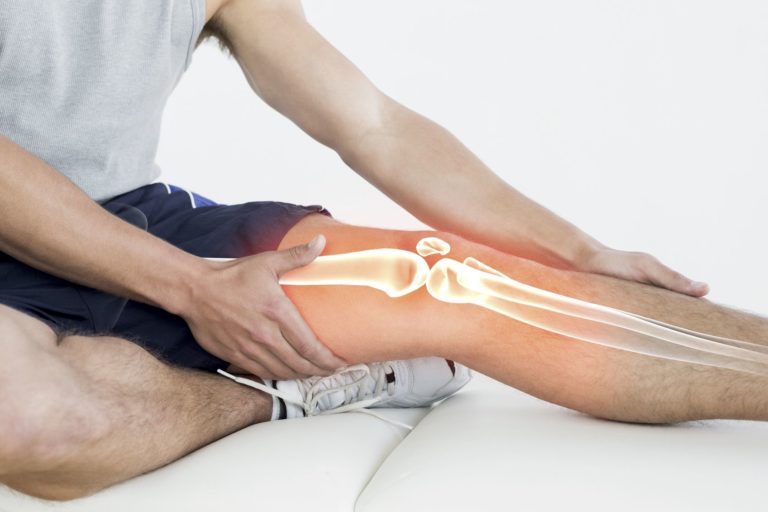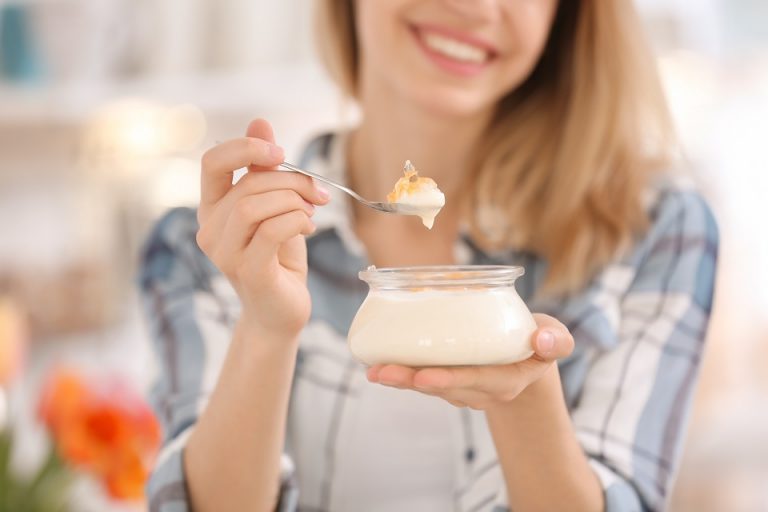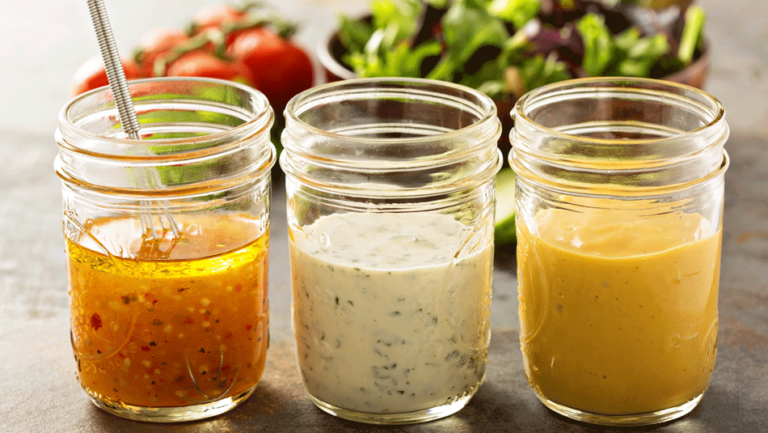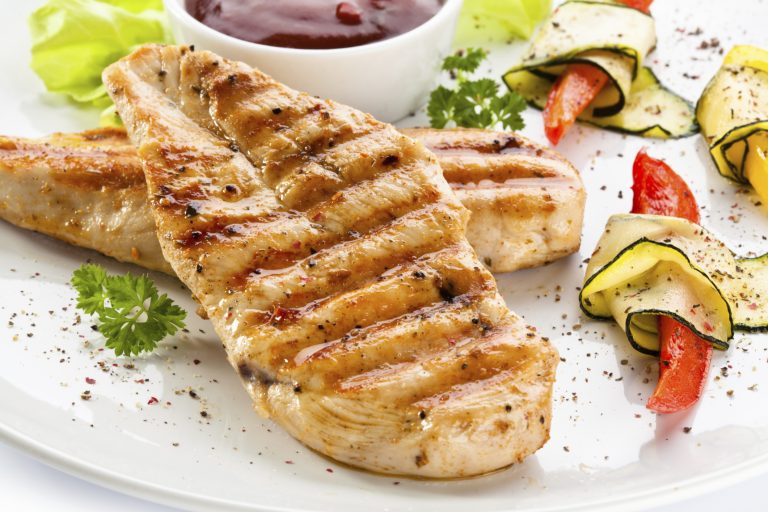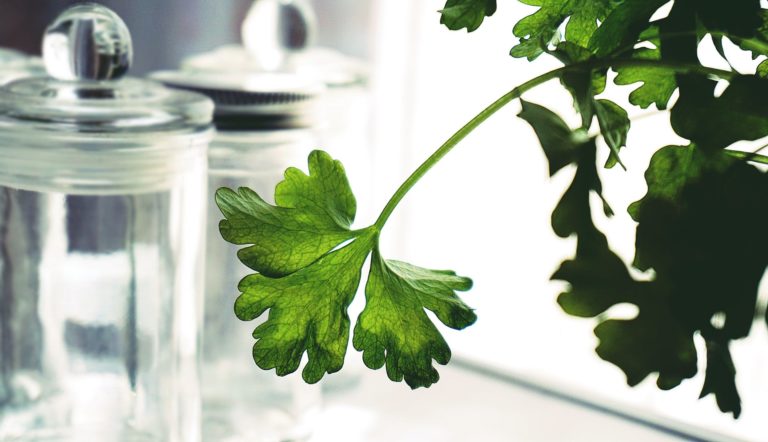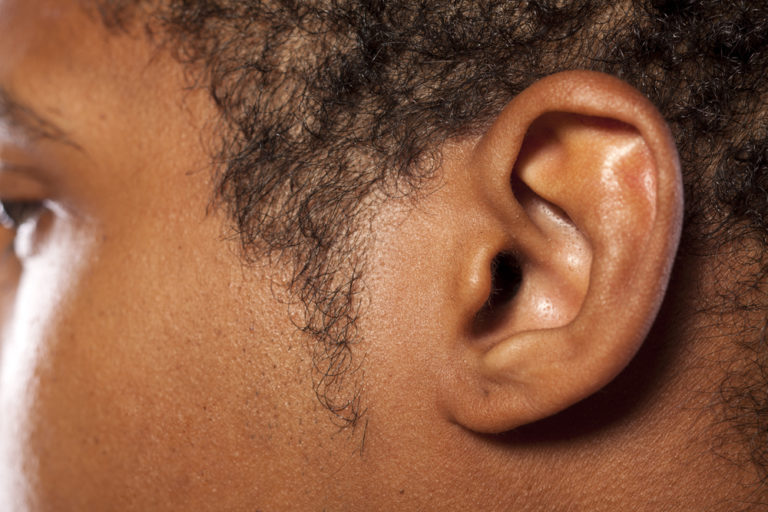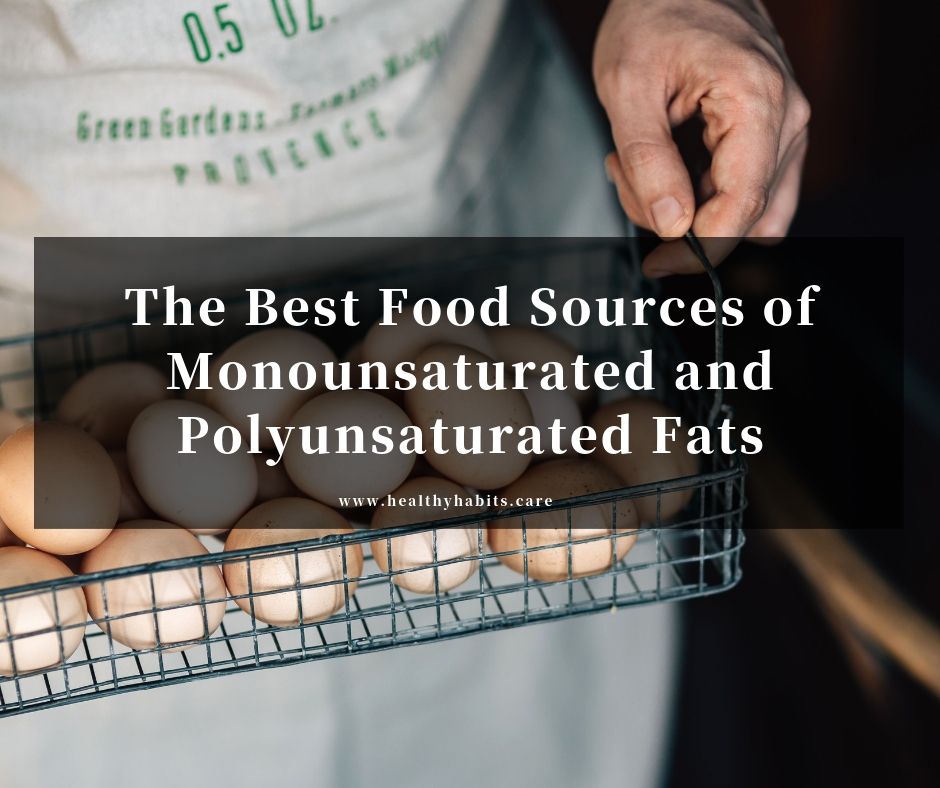
Most people have been trained to choose low-fat foods over high-fat foods. Fat has always been positioned as a dietary enemy, so it’s no wonder it can get totally confusing when doctors and dietitians sing the praises of what they call healthy fats.
There are plenty healthy, high-fat foods you should definitely be working into your meals and snacks on a regular basis – check them out!
Avocados
One medium avocado has approximately 23 grams of fat, but it is primarily monounsaturated fat. Plus, a medium avocado contains 40 percent of your daily fiber needs, is naturally sodium- and cholesterol-free, and is a good source of lutein, an antioxidant that may protect your vision.
Try enjoying it in place of foods that are higher in less-healthy saturated fat—use 1/5 of a medium avocado to replace the mayo on your sandwich, the butter on your toast, or the sour cream on your baked potato. Keep in mind that they’re pretty high in calories, so you generally want to stick to no more than 1/4 an avocado at a time.
Walnuts
Walnuts are one of the best sources of omega-3 fatty acids, specifically alpha linoleic acid, an omega-3 found in plants. A recent study linked a handful per day to lower total cholesterol and LDL cholesterol as well as improved blood vessel function. Research has also shown that eating nuts appears to reduce the risk of blood clots that can cause heart attacks as well as improve the health of the lining of our arteries.
Nut and seed butters
An easier way to get all the fatty goodness of nuts may be from a nut or seed butter. Try almond and cashew, or sunflower seed butter, for a plant-based dose of monounsaturated and polyunsaturated fats. All you need is 2 tablespoons—spread it on toast, or eat it with fresh apple slices. Choose all-natural nut butters with as few ingredients as possible.
Olives
One cup of black olives has 15 grams of fat, but again, it is mainly monounsaturated. Plus, no matter what variety of olive you enjoy, they all contain many other beneficial nutrients as well, such as hydroxytyrosol, a phytonutrient that has long been linked to cancer prevention.
New research is showing that this phytonutrient may play a role in reducing bone loss as well. And if you have allergies or other inflammatory conditions, olives might be just the snack for you as research suggests that olive extracts function as anti-histamines on the cellular level.
Even with all these benefits, it is important to be mindful of your serving size as olives can be high in sodium. Stick to 5 large or 10 small olives as the perfect portion.

Ground flaxseed
One cup of ground flaxseed has a whopping 48 grams of fat, but it’s all healthy, unsaturated fat. And here’s the thing, you only need 1-2 tablespoons to reap the benefits. Flaxseed is a great source of omega-3 fatty acids, too, so ground flaxseed is a great way for vegetarians (or those who don’t eat fish) to meet their need.
Also, flaxseed contains up to 800 times more lignans than other plant foods. These plant nutrients contain both plant estrogen and antioxidant properties, and research suggests that they may help prevent certain types of cancer.
Last, but not least, flaxseed contains both insoluble and soluble fiber, so it can help you feel fuller longer as well as reduce cholesterol and promote heart health. Sprinkle a little bit on yogurt or oatmeal, or scoop a spoonful into a smoothie.
Salmon
Oily fish like salmon (and sardines, mackerel, and trout) are full of omega-3 fatty acids, and known to help boost heart health. It’s one of the best ways to get the essential fat. The American Heart Association recommends eating at least two servings weekly to get the best benefits.
Dark chocolate
One ounce (about 3 fingers’ worth) of dark chocolate counts as one serving and contains about 9 grams of fat. About half of its fat content is saturated, but it also contains healthy fats and numerous other healthy nutrients—vitamins A, B, and E, calcium, iron, potassium, magnesium, and flavonoids (plant-based antioxidants).
And did you know a 1-ounce portion of dark chocolate also boasts 3 grams of fiber? Practically a vegetable. Aim for a cocoa content of at least 70 percent for the highest levels of flavonoids.
Tofu
It’s not as high in fat as the other foods on this list, but tofu is still a good source of monounsaturated and polyunsaturated fats. A modest, 3-ounce portion of super firm tofu contains 5 to 6 grams of fat and about 1 gram of saturated fat, but this is naturally-occurring fat from the soybeans, and tofu is considered a health food for a reason.
It’s a solid plant-based protein that’s low in sodium and provides nearly a quarter of your daily calcium needs.
Chia seeds
These small but mighty seeds are loaded with omega-3s, fiber, protein, essential minerals, and antioxidants. Their popularity as a superfood is well deserved—you can toss a tablespoon into your smoothies for a quick fat, fiber, and protein boost, or soak them overnight for a ready-when-you-wake-up breakfast parfait.
You can even use them to add nutritional punch to your desserts.
Eggs
They are an inexpensive and easy source of protein. People often think egg whites are a healthier option than whole eggs because they contain less fat, but while it’s true that the egg yolk contains some fat, it’s also packed with important nutrients. One whole egg contains 5 grams of fat, but only 1.5 grams are saturated.
Whole eggs are also a good source of choline (one egg yolk has about 300 micrograms), an important B vitamin that helps regulate the brain, nervous system, and cardiovascular system.
As for the cholesterol? The latest nutrition research has found that eating cholesterol doesn’t raise our blood cholesterol. In fact, research has linked moderate egg consumption to improved heart health.





